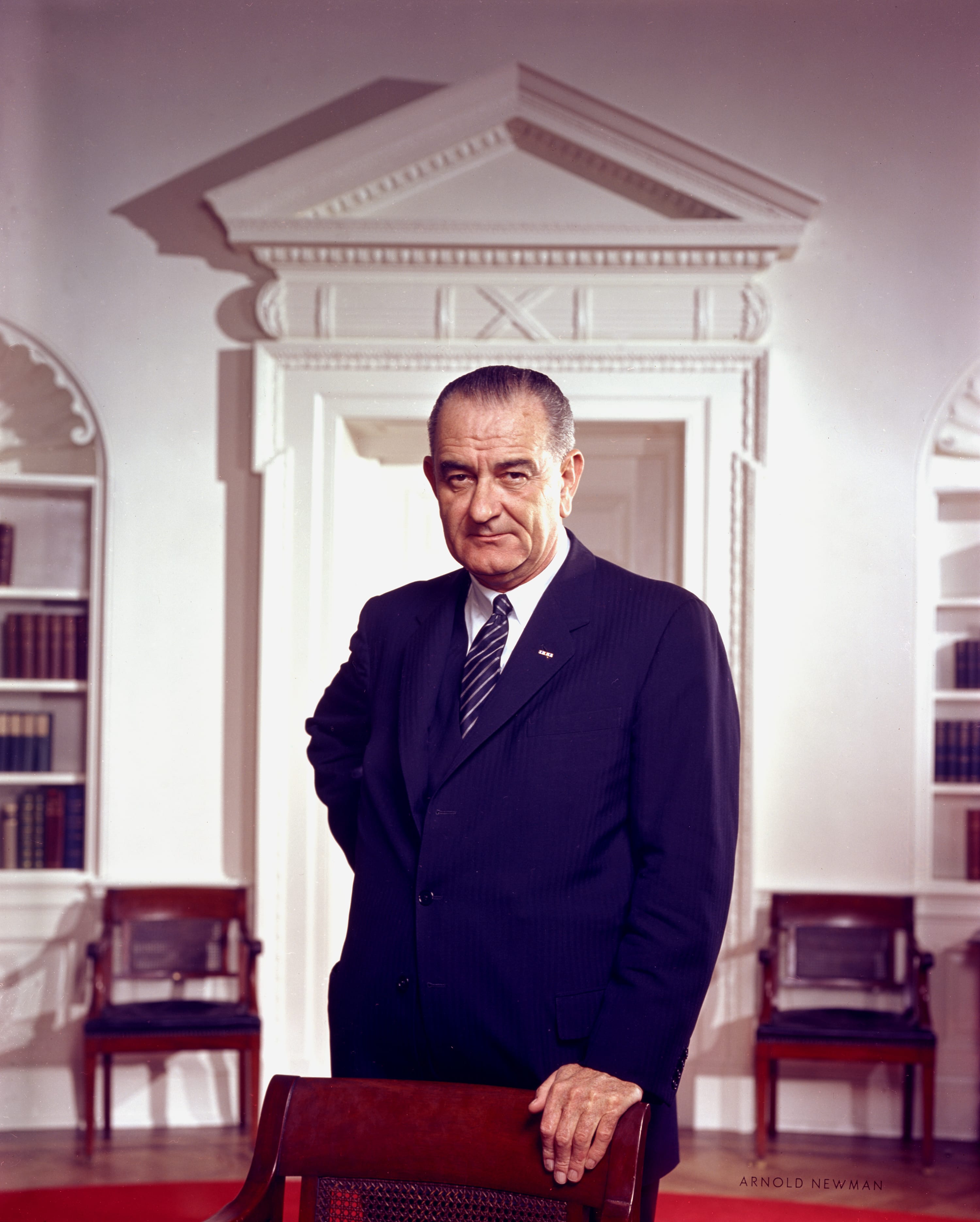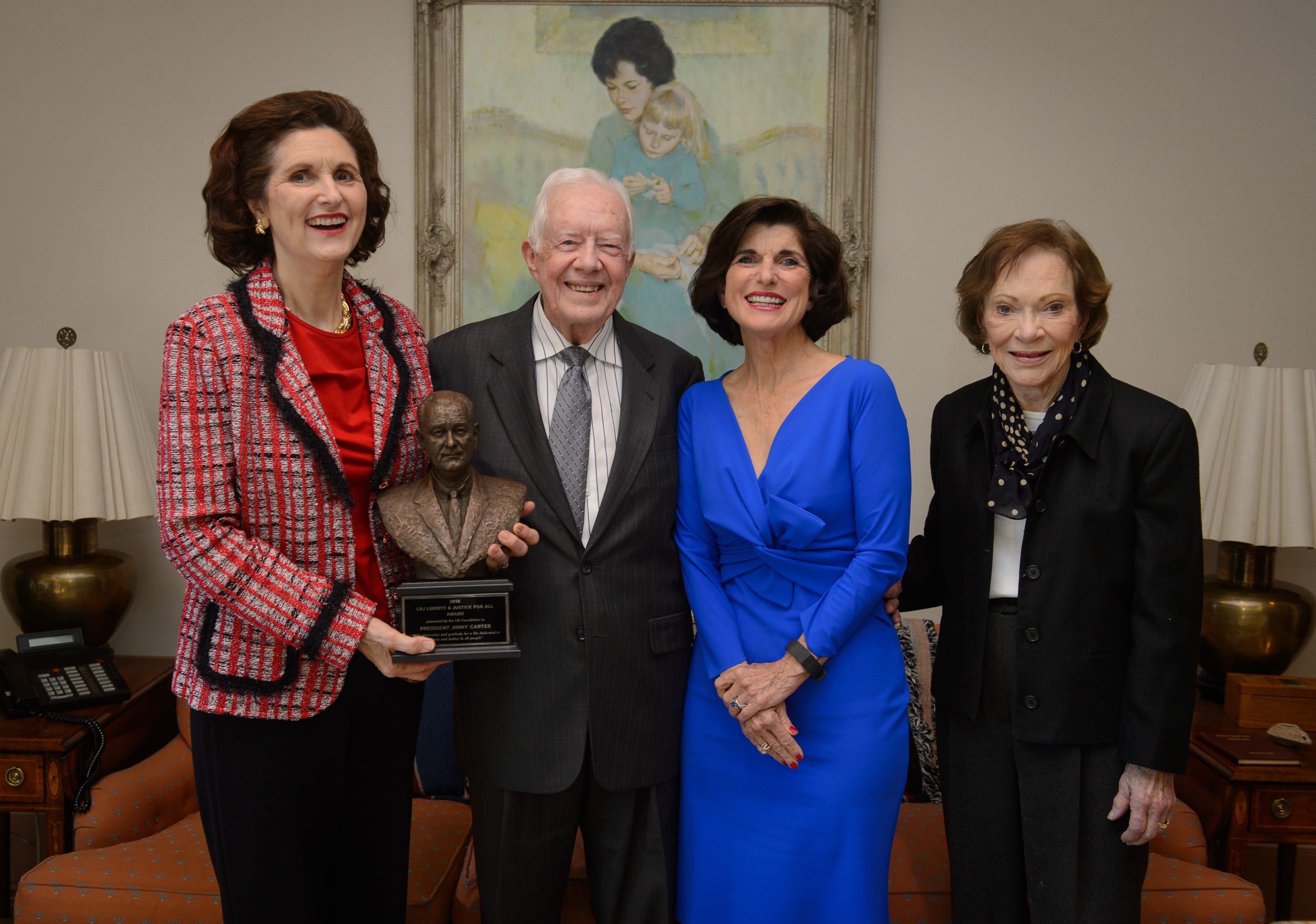
2016
LBJ Liberty & Justice For All Award
Jimmy Carter39th President of the United States
Press Release
ATLANTA, GA, Jan. 13, 2016 – The LBJ Foundation has awarded its most prestigious prize, the LBJ Liberty and Justice for All Award, to former President Jimmy Carter in recognition of his leadership in public service and his tireless efforts toward peace and human rights. In a ceremony on Wednesday, Jan. 13, 2016, at the offices of the 39th president in Atlanta, Georgia, LBJ Foundation trustees presented the award to President Carter with his wife, Rosalynn, at his side. Representing the Johnson family were Lynda Johnson Robb and Luci Baines Johnson.
The LBJ Liberty and Justice for All Award honors those, like President Carter, who personify Johnson's belief that the mission of public service is "to right wrong, to do justice, to serve man." At age 91, President Carter epitomizes Johnson's passion for justice and dream of bridging racial and economic divides.
Larry Temple, chairman of the LBJ Foundation, made the award presentation. "Throughout his rich and fruitful life, President Carter has shown a deep commitment to fostering liberty and ensuring justice for all, ideals that President Johnson held dear," said Temple. "We at the LBJ Foundation are pleased to give this award to President Carter, who embodies the best of who we are as Americans."
Though Johnson and Carter never met, as governor of Georgia, Carter wrote former President Johnson a handwritten note in December 1972, after a Civil Rights Symposium Johnson had convened at his presidential library. It read in part, "I have long admired you personally and deeply appreciate your tremendous and unprecedented achievements as president." Johnson died a month later.
"It is a great personal honor to be given the Liberty & Justice for All Award in the name of Lyndon Johnson, a man who helped shape my life and for whom I have the greatest admiration and appreciation," said Carter.
When Jimmy Carter was elected president in 1976, he appointed a record number of minorities to high federal positions, created the Department of Education, strengthened Social Security, and negotiated a historic peace agreement between Israel and Egypt, which remains in place today.
Carter is one of four American presidents to win the Nobel Peace Prize, which he received in 2002, and the only one to do so as a former president. The recognition furthered his international reputation as a humanitarian and peace broker.
Last year, Carter captured the world's attention and admiration when he announced with characteristic candor and openness that he had cancer. Even while undergoing treatment, Carter never slowed in his work at The Carter Center, a non-profit he and Mrs. Carter established in 1982 with the mission of a fundamental commitment to human rights and the alleviation of human suffering. Four months after his diagnosis, Carter announced he was free of cancer.
In a 2013 Parade magazine article, Carter talked with LBJ Library Director Mark Updegrove about his own legacy: "I'd like to be judged by our work at The Carter Center for the last 32 years. I don't mean to exclude the White House, but in my more self-satisfied moments, I think about our unwavering promotion of peace and human rights. We never deliberately deviate from those commitments, even though it's sometimes not a popular thing to do."
The LBJ Library has been fortunate to host Carter throughout the years. Most recently, on April 8, 2014, the former president was one of four U.S. presidents who spoke at the Civil Rights Summit commemorating the 50th anniversary of the Civil Rights Act. As a son of the south, Carter spoke of the "gross disparity" that still exists between America's black and white populations in unemployment and education.
Joining in the presentation to President Carter were members of the LBJ Foundation Board of Trustees including Tom Johnson, LBJ Foundation Chairman Emeritus; Elizabeth Christian, LBJ Foundation President; Amy Barbee, LBJ Foundation Executive Director; Ben Barnes, LBJ Foundation Vice Chairman and former Texas Lt. Governor; Texas Senator Rodney Ellis; Cappy McGarr; Ambassador Lyndon Olson, LBJ Foundation Vice Chairman; Angela Evans, Dean-Designate, LBJ School of Public Affairs; and Mark K. Updegrove, LBJ Library Director.
"There are no problems we cannot solve together, and very few that we can solve by ourselves."
- President Lyndon B. Johnson

About the LBJ Foundation
Established by President and Mrs. Johnson in 1969, the LBJ Foundation is a nonprofit organization comprised of a board of trustees and administrative staff that supports the LBJ Presidential Library and the LBJ School of Public Affairs at The University of Texas at Austin.
The LBJ Presidential Library, operated under the auspices of the National Archives and Records Administration, maintains the archive of President Johnson's administration and political career and promotes his legacy while providing, in his words, "a springboard for the future" through public programming aimed at addressing the issues of our time. The Foundation enhances the Library by directing public programming, administering the museum's store and admissions operations, and directing grants for researchers and scholars.
The LBJ School of Public Affairs embodies President Johnson's living legacy by nurturing leaders and public servants in the hopes that they will pursue what he called "the oldest, most basic mission of our country: to right wrong, to do justice, to serve man." The Foundation provides financial support for the school for the outstanding education it offers its graduate students in public policy and government affairs, community outreach, and global initiatives.
All bearing our 36th President's name, these three institutions—the LBJ Foundation, the LBJ Presidential Library, and the LBJ School of Public Affairs—preserve Lyndon B. Johnson's consequential legacy while pursuing his hopeful vision for the future.

